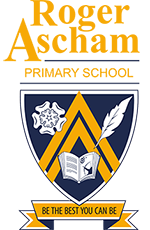English & Maths
This page is currently awaiting content
Group Teaching
Accordion content
Speaking, Listening and Communication
Accordion content
Reading & Phonics
At Roger Ascham we inspire our pupils to develop the speaking, listening, reading and writing skills which are essential for success in the rest of the curriculum and beyond. These skills are taught in English lessons and in lessons across the curriculum.
Speaking and listening underpins children’s development in English. Children have opportunities to speak and listen in a range of group sizes, with different people and with different purposes. These include role play, acting and public speaking. They learn to ask questions and check understanding in order to be active listeners who can learn from discussions. Children are taught vocabulary and structures in the context of meaningful communication and we inspire them to develop the habits of clarifying meaning and of seeking better ways to describe and structure their ideas.
Whether recognising their name; following a structured phonics program; reading novels; or non-fiction texts in core subjects; children at Roger Ascham learn that reading is a meaning making activity which affords infinite possibilities for communication, learning and enjoyment; we teach children to read so that they read to learn and read for enjoyment. We support our children to develop the habits of reading – by reading to them in class and by expecting and supporting them to read at home. High quality literature is available in classrooms, the school library, the local library and online.
The skills that the children learn in English at Roger Ascham are integral to success in the broader curriculum and in life.
Writing
At Roger Ascham we inspire our pupils to develop the speaking, listening, reading and writing skills which are essential for success in the rest of the curriculum and beyond. These skills are taught in English lessons and in lessons across the curriculum.
Our pupils have the opportunity to develop intellectually, emotionally, culturally, socially and spiritually through the written and spoken word. This learning takes place in an atmosphere of respect and challenge. We respect the child’s best efforts at understanding and being understood. We challenge the children to be clear; to organise their thoughts; and to use Standard English.
Speaking and listening underpins children’s development in English. Children have opportunities to speak and listen in a range of group sizes, with different people and with different purposes. These include role play, acting and public speaking. They learn to ask questions and check understanding in order to be active listeners who can learn from discussions. Children are taught vocabulary and structures in the context of meaningful communication and we inspire them to develop the habits of clarifying meaning and of seeking better ways to describe and structure their ideas.
At Roger Ascham we teach children to write accurately and with stamina. The children rehearse the vocabulary, sentence structures, organisational structures and handwriting skills they need to express themselves and organise their ideas. We inspire them to improve their grammar, punctuation and spelling skills as a means to improve the communication of their ideas and feelings. Writing tasks are meaningful and as often as possible have a real life purpose.
The skills that the children learn in English at Roger Ascham are integral to success in the broader curriculum and in life.
Maths
At Roger Ascham, children will learn the facts, procedures and conceptual understanding which will form the foundations for a lifelong enjoyment and understanding of maths. By recognising and using maths in a range of subjects across the curriculum, they will learn that maths is an interconnected, creative subject which helps us to study the world.
Children at Roger Ascham will develop mathematical fluency. They will learn facts and procedures and recall and apply knowledge rapidly and accurately. Fluency in facts and procedure will be underpinned by conceptual understanding. In turn, children’s fluency will also support children to learn new concepts. At Roger Ascham we see the development of fluency and conceptual understanding as mutually supportive.
Children will communicate, study patterns, and represent ideas. They will make conjectures, follow a line of enquiry and develop and present arguments using mathematical language. They will communicate about maths using concrete, pictorial and abstract representations of concepts and numbers.
Children will solve problems by applying their mathematics to a variety of routine and non-routine problems, including breaking down problems into a series of simpler steps and persevering in seeking solutions. Mistakes and misconceptions will be used as learning opportunities and will be shared as part of a collaborative process of problem solving and building understanding.
